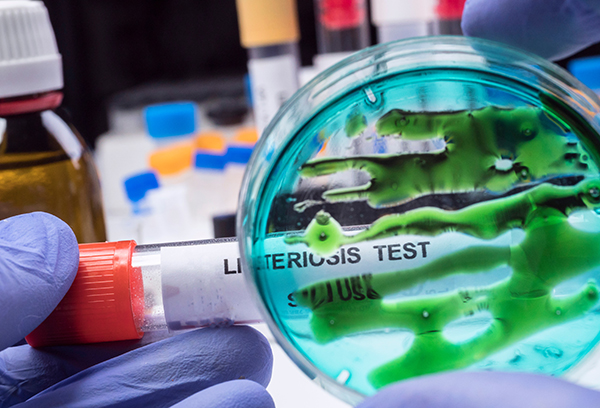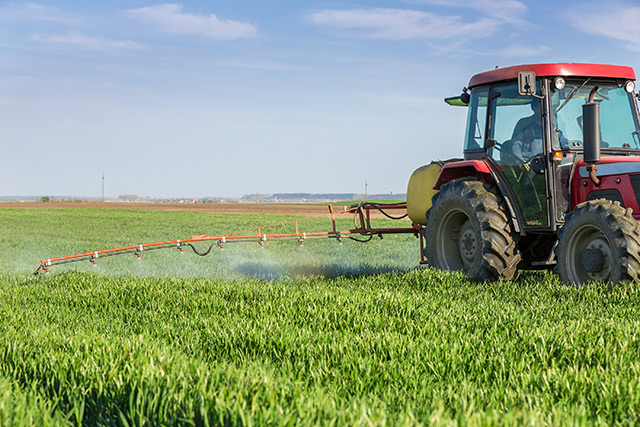Product recall announced for organic blueberries after routine testing finds Listeria
07/17/2025 / By Olivia Cook

- Georgia-based Alma Pak International recalled 12,000 pounds of organic blueberries due to Listeria monocytogenes contamination, classified by the FDA as a high-risk Class I recall. No illnesses were reported.
- A June outbreak linked to chicken fettuccine alfredo hospitalized 17 people across 13 states, causing three deaths and one miscarriage. Kraft Heinz also recalled 368,000 pounds of Oscar Mayer turkey bacon in July over Listeria concerns.
- L. monocytogenes thrives in cold temperatures, contaminating deli meats, ready-to-eat meals and unpasteurized dairy. It forms biofilms, evading detection and lingering for years. Infections are rare but deadly for high-risk groups (pregnant women, elderly, immunocompromised).
- Key reasons include vulnerabilities in ready-to-eat foods, gaps in routine testing, biofilm resilience in facilities and low public awareness. Delays in symptom onset (up to 70 days) complicate traceability.
- Check recall labels, heat high-risk foods and seek medical care for flu-like symptoms after consuming suspect foods. Advocacy for stronger food safety systems is critical to address systemic gaps.
In another incident highlighting food handling safety, a product recall has been announced for organic blueberries after routine testing found traces of a foodborne pathogen in the fruits.
On June 9, Georgia-based Alma Pak International issued a recall for 12,000 pounds of organic blueberries after routine testing found traces of Listeria monocytogenes. While no illnesses were reported and most of the identified products were intercepted before hitting store shelves, the Food and Drug Administration (FDA) classified the recall as Class I – its highest level of health risk.
The recall was followed by serious food safety incidents. Eight days later on June 17, a national Listeria outbreak linked to chicken fettucine alfredo broke out. The product sold at major retailers hospitalized 17 people across 13 states. Three people died, and one mother lost the child she was carrying. Investigators are still working to identify the specific ingredient responsible.
The following month, the Kraft Heinz Food Company recalled nearly 368,000 pounds of Oscar Mayer turkey bacon. The July 2 recall came after its internal testing flagged potential Listeria contamination. The product had already reached stores across the country – and even abroad.
What is Listeria?
L. monocytogenes is a sneaky, tricky and unusually dangerous foodborne bacterium. Unlike most germs that hate the cold, it can thrive and multiply in refrigerators, making it dangerous. This pathogen is commonly found in:
- Cold deli meats
- Pre-packaged, ready-to-eat meals
- Raw produce
- Smoked seafood
- Soft cheeses
- Unpasteurized dairy
What makes Listeria even scarier is that people can’t see or smell it. It can quietly multiply on surfaces and inside foods, forming slimy protective layers called biofilms that allow it to linger in food-processing plants and home refrigerators for years.
For many healthy adults, eating contaminated food might lead to nothing more than a bout of flu-like symptoms or stomach upset. But for others, it can be life-threatening.
People most at-risk include:
- Pregnant women, because Listeria can cross the placenta and cause miscarriage, stillbirth or a life-threatening infection (sepsis) in newborns.
- Newborns and infants, whose immune systems aren’t fully developed, can have neonatal meningitis.
- Older adults (especially over 65), whose immunity naturally weakens with age, are at risk for encephalitis and gastroenteritis and may experience more severe complications.
- Immunocompromised individuals, such as those undergoing chemotherapy, living with HIV/AIDS or taking immune-suppressing medications are at increased risk for developing encephalitis and even death.
Of all the foodborne illnesses tracked in the U.S., Listeria has one of the highest fatality rates. Even though it causes far fewer inflections than pathogens like Salmonella or Escherichia coli, it is responsible for roughly 260 deaths a year. That’s why public health officials are particularly alarmed every time it surfaces because it often leads to hospitalization, and even when symptoms appear, it may already be too late.
Why Listeria outbreaks keep happening
Here’s the frustrating part. The causes of listeriosis are known, alongside those who are most at risk from it. But why do outbreaks persist?
- Ready-to-eat foods are especially vulnerable. These foods are designed for convenience, and that’s exactly the problem. They skip the final “kill step” of cooking. That means if Listeria is present during packaging or handling, it goes straight to food. The outbreak proves just how deadly it can be.
- Big brands aren’t immune. When most people hear or see “Oscar Mayer,” they think of a trusted staple. But even industry giants like Kraft Heinz are susceptible. Larger operations come with greater complexity, more suppliers and tighter timelines – factors that can complicate sanitation and oversight.
- Routine testing isn’t foolproof. Alma Pak’s recall was a success story in one way – caught through routine testing before major harm occurred. But it also begs tough questions: How many lots slip through undetected? And how do smaller suppliers – without robust internal labs – keep up?
- Listeria can linger for years. Unlike other foodborne bacteria, L. monocytogenes forms biofilms – slimy, protective coatings that allow it to hide out in factory drains, floors and hard-to-clean equipment. If facilities aren’t aggressively cleaned and audited, it can persist for years, re-contaminating products batch after batch.
- Public awareness lags behind. Even though Class I recalls signal a high risk of serious illness or death, many shoppers don’t recognize the danger. By the time people hear about the recall, they may have already eaten the contaminated food or stored it for later consumption. Because symptoms of listeriosis can take up to 70 days to show for some, few connect the dots.
While total elimination of risk isn’t possible, awareness and informed habits can go a long way. Here’s how to stay ahead of Listeria:
- Read labels and lot numbers. Recalls often specify UPC codes, lot numbers and expiration dates (best/use by dates). Take a moment to check refrigerators when recalls are announced.
- Don’t assume “cold” means safe. L. monocytogenes grow and thrive at refrigeration temperatures. Be extra cautious with deli meats, packaged salads or cold meals, smoked seafood, soft cheeses and unpasteurized dairy.
- Heat when in doubt. Those in high-risk groups should heat deli meats and leftovers to “steaming hot.” This kills most bacteria, including Listeria.
- Trust your gut – literally. Seek medical attention when flu-like symptoms appear after eating any high-risk food, especially while pregnant. Mention the food. Listeriosis is treated with antibiotics, and early treatment saves lives.
Listeria outbreaks don’t just affect the vulnerable. They expose deeper issues in how food is made, tested and distributed.
Visit CleanFoodWatch.com for more similar stories.
Watch Dr. Joanne Edge of the British Food Standards Agency explaining what Listeria is.
This video is from the Daily Videos channel on Brighteon.com.
More related stories:
Ready-to-eat chicken fettuccine alfredo RECALLED over Listeria contamination.
Inhibiting enzymatic function in Listeria bacteria found to weaken its antibiotic resistance.
CDC warns of LISTERIA outbreak in DAIRY products.
Sources include:
Submit a correction >>
Tagged Under:
blueberries, Class I recall, clean food watch, dangerous, Food and Drug Administration, food safety, food science, food supply, foodborne pathogens, fruits, grocery, health science, infections, listeria, Listeria monocytogenes, listeriosis, organics, outbreak, products, routine testing, stop eating poison
This article may contain statements that reflect the opinion of the author
RECENT NEWS & ARTICLES
COPYRIGHT © 2019 Dangerous.News
All content posted on this site is protected under Free Speech. Dangerous.News is not responsible for content written by contributing authors. The information on this site is provided for educational and entertainment purposes only. It is not intended as a substitute for professional advice of any kind. Dangerous.News assumes no responsibility for the use or misuse of this material. All trademarks, registered trademarks and service marks mentioned on this site are the property of their respective owners.



















